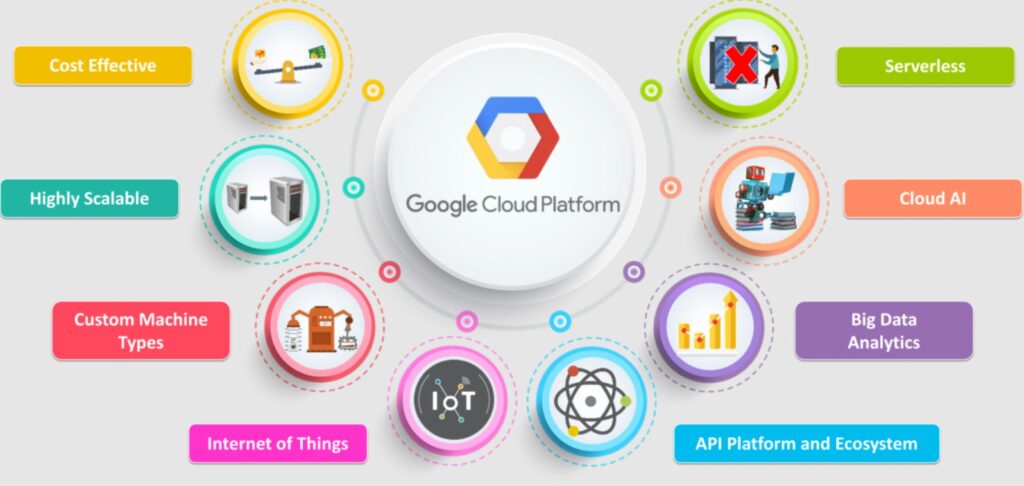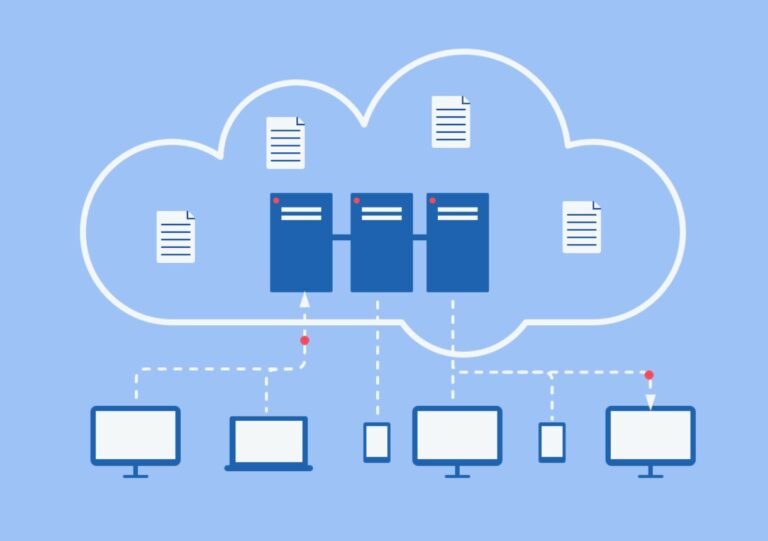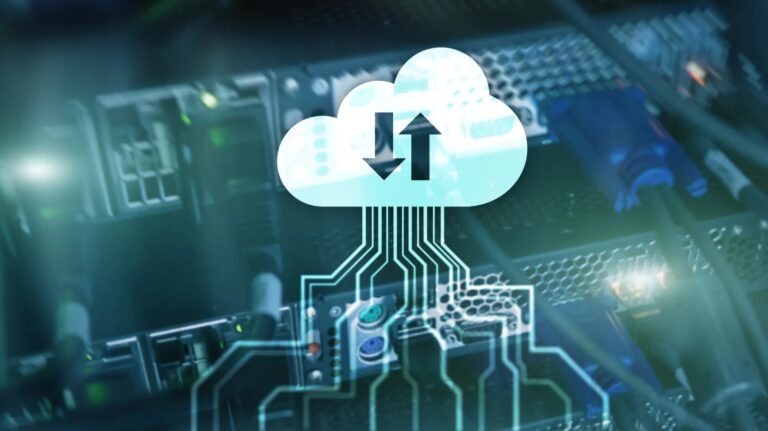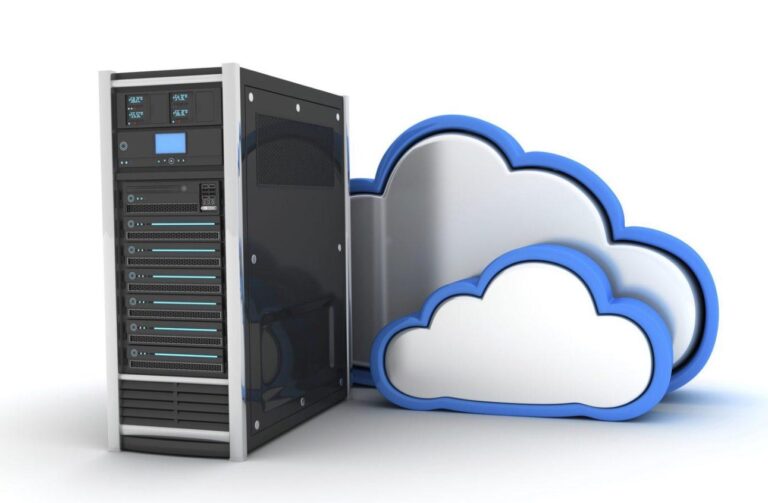Cloud Based Server: Benefits, Top Products, and Buying Guide
In the modern era of technology, businesses and individuals are progressively relying on cloud-based server for their hosting and data storage requirements.
This detailed article offers an extensive exploration of cloud-based servers, highlighting their advantages, showcasing the leading products available in the market, and providing guidance on selecting the most suitable option for your specific needs.
What is a Cloud-Based Server?
A cloud-based server refers to a virtual server that operates in a cloud computing environment, as opposed to a physical server.
It is specifically engineered to deliver scalable and adaptable hosting solutions to businesses and individuals, obviating the necessity for physical hardware.
Accessible over the internet, this virtual server provides an array of computing resources, including processing power, memory, and storage.
See also: Server Cloud Backup: Secure Your Data with the Best Options
Benefits of Cloud-Based Server

Scalability and Flexibility 🌐
Cloud-based servers offer the ability to dynamically adjust their capacity to meet your specific requirements, providing unparalleled flexibility.
These servers can seamlessly scale up to accommodate sudden increases in website traffic, ensuring that your website remains responsive and consistently available.
Additionally, they can efficiently scale down during periods of reduced demand, effectively conserving resources and optimizing cost efficiency.
Cost-Effectiveness 💰
Old servers play a significant role in reducing costs for businesses by eliminating the need for physical hardware and the costs associated with maintenance.
This approach allows businesses to pay only for the resources they use, making it a highly efficient and cost-effective solution for businesses of all sizes.
Reliability and Uptime 🚀
Cloud servers are known for their high reliability and uptime. They are equipped with multiple redundancies to ensure that your data remains safe and your services continue to operate seamlessly even in the event of hardware failures.
This level of protection and continuity is essential for businesses and individuals who rely on their digital services to be consistently available and operational.
Security 🔒
Service providers prioritize the security of your data by making substantial investments in various security measures.
These measures include robust encryption techniques, firewalls that act as a barrier against unauthorized access, and regular security audits to identify and rectify potential vulnerabilities.
These efforts ensure that your valuable data is well-protected against a wide range of cyber threats, providing you with peace of mind regarding the confidentiality and integrity of your information.
Accessibility 🌍
Access your server from any location with an internet connection, enabling remote teams to easily collaborate and efficiently manage data.
This capability is particularly advantageous for distributed teams working across different geographical locations, as it enables seamless access to critical information and resources regardless of physical distance.
See also: Cloud Web Server: Guide, Top Solutions, Benefits, and How to Buy
Top Cloud-Based Server Products
1. Amazon Web Services (AWS)
AWS is one of the most popular cloud service providers, offering a wide range of cloud-based server solutions.
- Use Case: Ideal for businesses of all sizes, from startups to enterprises.
- Pros: Highly scalable, extensive range of services, robust security.
- Cons: Can be complex for beginners, and costs can escalate quickly.
- Price: Pay-as-you-go model, starting from $0.012 per GB.
- Features: EC2 instances, S3 storage, RDS, machine learning, IoT.
2. Microsoft Azure
Azure provides comprehensive cloud services that integrate well with Microsoft products.
- Use Case: Best for businesses that heavily use Microsoft products.
- Pros: Seamless integration with Microsoft tools, strong support, and hybrid cloud capabilities.
- Cons: Complex pricing structure, can be expensive.
- Price: Pay-as-you-go, starting from $0.008 per GB.
- Features: Virtual machines, SQL databases, Azure Active Directory, AI services.
3. Google Cloud Platform (GCP)

GCP is known for its data analytics and machine learning capabilities.
- Use Case: Ideal for businesses focusing on data analysis and machine learning.
- Pros: Strong in data analytics, innovative services, and competitive pricing.
- Cons: Smaller range of services compared to AWS, learning curve.
- Price: Pay-as-you-go, starting from $0.010 per GB.
- Features: Compute Engine, BigQuery, Cloud Storage, AI, and machine learning tools.
4. IBM Cloud
IBM Cloud offers robust cloud solutions with a focus on AI and IoT.
- Use Case: Best for businesses looking to leverage AI and IoT.
- Pros: Strong AI capabilities, hybrid cloud solutions, high security.
- Cons: Limited global reach, pricing can be high.
- Price: Pay-as-you-go, starting from $0.005 per GB.
- Features: Watson AI, Blockchain, Kubernetes, IoT platform.
5. Oracle Cloud
Oracle Cloud is known for its database services and enterprise solutions.
- Use Case: Ideal for enterprises needing robust database services.
- Pros: Strong database services, excellent performance, comprehensive security.
- Cons: Complex to set up, higher learning curve.
- Price: Pay-as-you-go, starting from $0.03 per GB.
- Features: Autonomous Database, Compute, Storage, AI services.
See also: Server Backup Cloud: The Ultimate Guide and Solutions
Cloud-Based Server Comparison
| Product | Use Case | Pros | Cons | Price | Features |
|---|---|---|---|---|---|
| AWS | All sizes | Scalable, extensive services, secure | Complex, cost escalates | $0.012 per GB | EC2, S3, RDS, Machine Learning, IoT |
| Microsoft Azure | Microsoft-centric businesses | Integration, strong support, hybrid | Complex pricing, expensive | $0.008 per GB | VMs, SQL, Azure AD, AI services |
| Google Cloud | Data-focused businesses | Data analytics, innovative, pricing | Fewer services, learning curve | $0.010 per GB | Compute, BigQuery, Cloud Storage, AI |
| IBM Cloud | AI and IoT-focused businesses | AI capabilities, hybrid, secure | Limited reach, high pricing | $0.005 per GB | Watson AI, Blockchain, Kubernetes, IoT |
| Oracle Cloud | Enterprise database needs | Strong DB services, performance, security | Complex setup, high learning curve | $0.03 per GB | Autonomous DB, Compute, Storage, AI |
How to Buy and Where to Buy
Amazon Web Services (AWS)
- Website: AWS
- How to Buy: Sign up for an AWS account, select the services you need, and start using them with a pay-as-you-go model.
- Price: Starts at $0.012 per GB.
Microsoft Azure
- Website: Microsoft Azure
- How to Buy: Create an Azure account, choose the services you require, and begin with a pay-as-you-go pricing model.
- Price: Starts at $0.008 per GB.
Google Cloud Platform (GCP)
- Website: Google Cloud
- How to Buy: Sign up for a GCP account, select your services, and pay as you go.
- Price: Starts at $0.010 per GB.
IBM Cloud
- Website: IBM Cloud
- How to Buy: Register for an IBM Cloud account, choose your services, and start with a pay-as-you-go plan.
- Price: Starts at $0.005 per GB.
Oracle Cloud
- Website: Oracle Cloud
- How to Buy: Create an Oracle Cloud account, select the services you need, and use the pay-as-you-go pricing model.
- Price: Starts at $0.03 per GB.
Use Cases: Solving Problems with Cloud-Based Server
Scalability for Growing Businesses 📈
Cloud-based servers provide scalability, allowing businesses to handle growing traffic without investing in additional hardware.
Remote Collaboration 👩💻👨💻
With cloud servers, teams can collaborate remotely, accessing and managing data from anywhere in the world.
Cost Savings for Startups 💡
Startups can save on initial hardware and maintenance costs, investing instead in growth and development.
Enhanced Security 🔐
Businesses can ensure their data is secure with the robust security measures offered by cloud service providers.
Improved Performance 🚀
Cloud servers often provide better performance and uptime compared to traditional on-premises servers.
FAQs
1. What is a cloud-based server?
A cloud-based server is a virtual server that operates in a cloud computing environment, providing scalable and flexible hosting solutions accessible via the Internet.
2. What are the benefits of using a cloud-based server?
Benefits include scalability, cost-effectiveness, reliability, security, and global accessibility.
3. Which cloud-based server provider is best for small businesses?
AWS and Google Cloud are often recommended for small businesses due to their flexible pricing and extensive service offerings.
4. How do I choose the right cloud-based server?
Consider factors such as your business needs, budget, required features, and the provider’s reputation and support services.
5. Can cloud-based server be used for hosting websites?
Yes, cloud-based servers are commonly used for hosting websites, offering high scalability and reliability.
By understanding the benefits, exploring top products, and knowing where and how to buy, you can make an informed decision about integrating cloud-based servers into your business or personal projects. Happy hosting! 🎉





